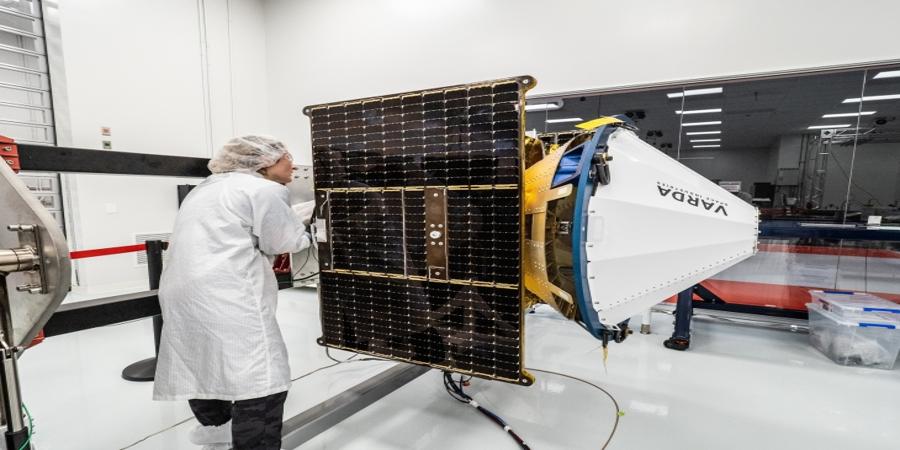Varda Space Industries, the in-space manufacturing startup that wants to revolutionize the production of pharmaceuticals, semiconductors and more, is in the process of raising $25 million in new capital that would put its valuation at around $500 million after investment, according to documents viewed by TechCrunch.
The fundraising comes at a crucial time for Varda, which is preparing to send its first spacecraft to orbit. The startup has ambitions to operate multiple autonomous “space factories” in orbit capable of manufacturing sensitive materials that can only be produced in a zero-G environment. While in-space manufacturing is not new, thanks to years of research on the International Space Station, no company has yet been able to manufacture in the space environment at scale nor return the products to Earth.
The $25 million pre-Series C “family and friends” round is being raised as a special-purpose vehicle (or SPV) managed by Side Door Ventures, which has invested in two of Varda’s prior rounds. One of Side Door’s investors, Jordan Croom, joined Varda in September 2021 as head of payloads and mechanisms. According to his LinkedIn, Croom focuses primarily “on early stage deep/frontier tech in industries such as space, robotics, energy, climate, and transportation” at Side Door. The company may have since updated its term sheet.
Hustle Fund Scale, which is helping organize the SPV, is requesting that interested investors commit and wire money by May 31. Varda declined to comment for this story.
The company’s inaugural mission will fly on SpaceX’s Transporter-8 ride-share mission in June. The spacecraft, which was manufactured by Rocket Lab as part of a bulk-order buy, will contain small Varda-made manufacturing and reentry modules. After spending around three months in orbit, the company hopes to return between 40 and 60 kilograms of material to Earth.
Among the applications that Varda is planning on targeting is pharmaceuticals. Microgravity has major implications for drug development and could improve bioavailability, extend shelf life, and offer other breakthroughs. The total addressable market for these products and others — including semiconductors and fiber-optic cables — could be astronomical.
Last fall, Varda brought on a life sciences market development lead and a VP of biopharma business development to expand its relationships with potential pharmaceutical customers, according to LinkedIn. In March, the company also hired a principal pharmaceutical scientist.
The El Segundo, California–based startup was co-founded by Will Bruey, an engineer who had a nearly six-year tenure at SpaceX working on its Dragon spacecraft, and Founders Fund principal Delian Asparouhov. The company has raised a notable amount of funding since being founded in the fall of 2020, including an $11 million seed round and a $42 million Series A. However, according to documents from HF Scale, Varda has raised $150 million to date from investors.
Varda faces competition from companies such as Redwire, Space Forge and the Exploration Company that also have ambitions to manufacture sensitive materials in space.
Source @TechCrunch



